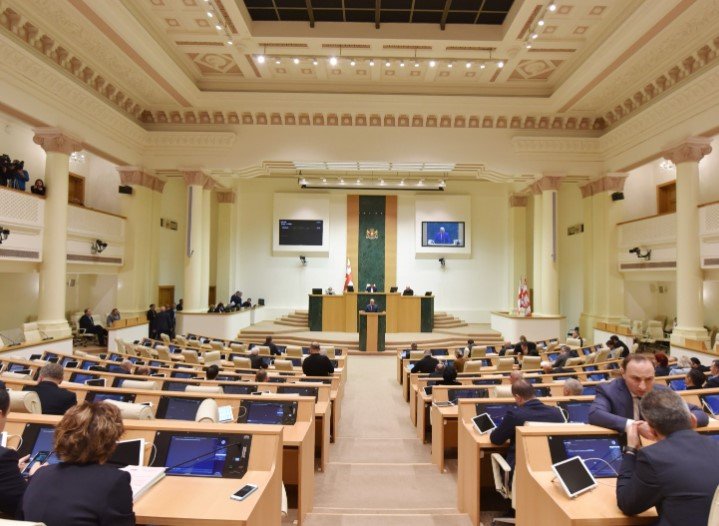In the heart of the Caucasus, Georgia finds itself at a crossroads, grappling with a series of controversial laws that have sparked widespread debate and concern both domestically and internationally.
The President’s Stance
President Salome Zurabishvili has taken a firm stand against what she perceives as provocations aimed at destabilizing Georgian society. She argues that the laws in question, including those related to LGBT rights and the reintroduction of the so-called “Russian Law,” are designed to incite disorder.

The president’s remarks come at a time when Georgia is striving to strengthen its democratic institutions and maintain its path towards European integration. The tension between these goals and the proposed legislation has raised questions about the country’s future direction.
Societal Implications
The implications of these laws extend beyond the political arena, affecting the very fabric of Georgian society. There is a palpable sense of aggravation among the populace, with many feeling that these laws are a direct challenge to the nation’s values and its aspirations for a more inclusive society.
The debate has also highlighted the role of external influences in Georgian politics, with some viewing the “Russian Law” as a move that could potentially align Georgia closer to Russian interests, contrary to the country’s EU aspirations.
International Reactions
Internationally, the situation has not gone unnoticed. Georgia’s partners and allies are closely monitoring the developments, concerned about the potential impact on the country’s stability and its relationship with the West.
The European Union, in particular, has a vested interest in the outcome, given Georgia’s status as a candidate country. The EU’s response to these legislative initiatives could significantly influence Georgia’s integration process and its broader foreign policy orientation.
